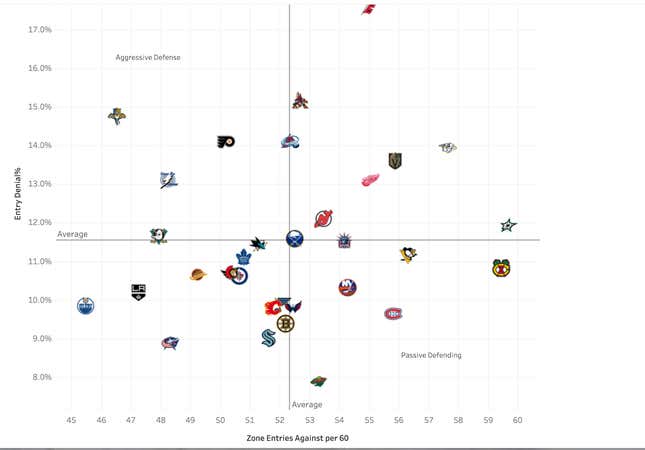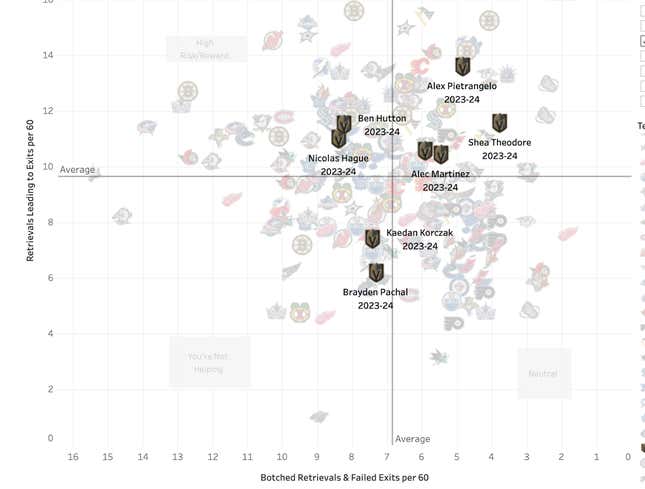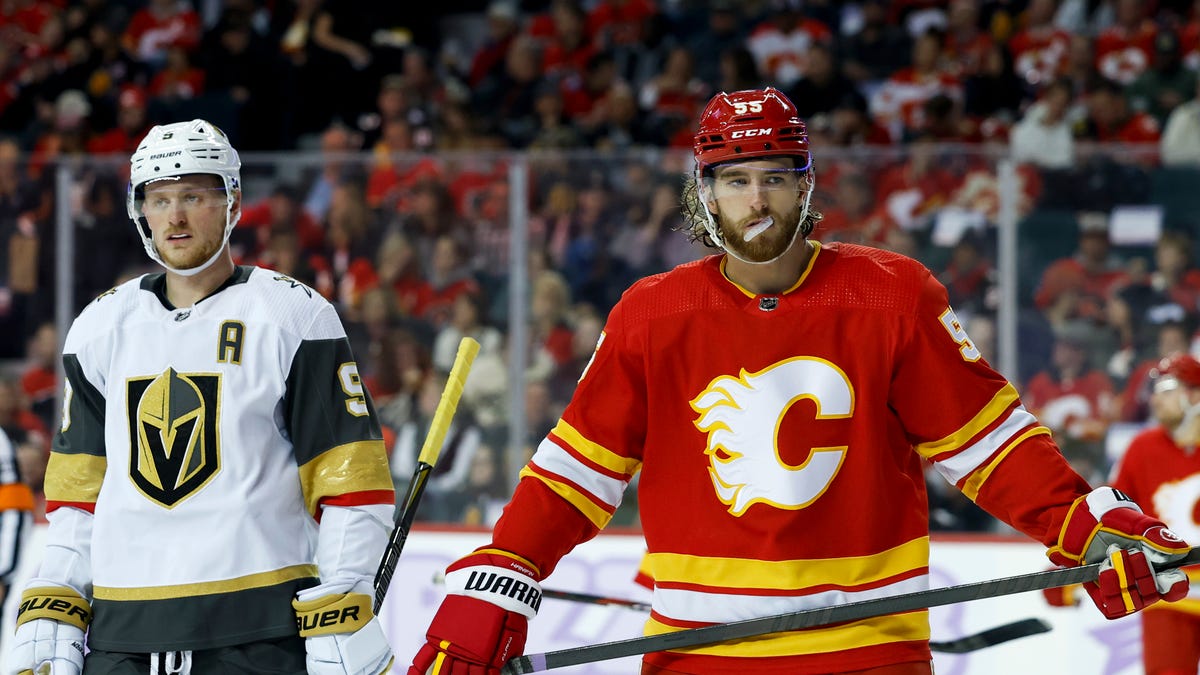No, not that wall. Calm down, Jethro.
It’s an NHL tradition by now, the Las Vegas Golden Knights finding a way to acquire the biggest piece on the free agent or trade market, either in the summer or at the deadline. They usually do it by waiting for something to fall off Mark Stone or Jack Eichel and then using the LTIR space. Other teams can cry about it, and usually do, but them’s the rules. Mark Stone and Jack Eichel get hurt. Kind of their thing.
Mike Tyson will hospitalize Jake Paul on Netflix
It’s no different this time, as the Knights have used Stone’s spleen money to nab Noah Hanifin from the Calgary Flames last night, and Hanifin was probably the biggest name left in the defenseman shop. At least since Hanifin’s former teammate Chris Tanev was punted to Dallas earlier.
It’s clear what Vegas is after here. Hanifin isn’t spectacular at anything while being pretty good at just about everything. He’s a large man at 6-foot-3, but isn’t a plodder. He’ll join a defense where none of the six d-men deployed during the playoffs will be under 6-foot-2, which none of them are all that slow of foot.
What that will enhance is what the Knights want to, and probably have to, do to get out of the Western Conference. Their probable path back to the Final is through some order of the Edmonton Oilers and Vancouver Canucks, two of the highest-scoring teams in the league. After that, it’s one of the Dallas Stars, Winnipeg Jets, or the Colorado Avalanche — and the Avs and Stars are two of the top-three scoring teams in the league.
Digging deeper, what Kelly McCrimmon is eyeing down the pike in April and May is that Edmonton, Colorado, and Winnipeg are some of the best rush teams in the NHL, and to let them carry the puck into the offensive zone with possession and speed is the fastest way to end up out on your ass before the trophies are handed out.
The Knights are one of the better teams at denying clean entries around:

And we saw this in practice when the Knights ended the Oilers’ 16-game winning streak last month. They suffocated Edmonton right at their blue line, with pressure from both sides forcing the Oilers to dump the puck in or end up in a likely turnover, turning the Knights up the ice the other way. And once you dump the puck in against the Knights, it’s kind of over, given the size and mobility of their defense. The Knights aren’t really fussed about exiting their zone with possession, as they’re happy to bank, chip, or float the puck out of their zone and let their forwards chase it down in the neutral zone. As you can see here, their top four before Hanifin’s arrival were some of the best at not turning the puck over below their goal line:

Hanifin is only average at this sort of thing, as he’s right at the axis there. But with better support from the Vegas forwards than he got from the Flames’, he will probably jump in effectiveness as long as he’s successfully cutting off the blue line to the likes of Pettersson, Miller, Draisaitl, McDavid, MacKinnon, Robertson, Hintze, and the like.
Playoff hockey slows down from the regular season, and more of it is played on the boards and in the corners. The places where the Knights excel, especially when Stone is miraculously healthy come Round 1 Game 1. Hanifin only provides them more of it, and if any rival truly wants to turn the Knights over four out of seven times, they’re going to have to go into the dark and angry places. The acquisition of Hanifin will only funnel opponents to them even more.
And of course, the Knights probably aren’t done. They never are. Even with the return of Stone, they look a little short at forward. Which is why they’ve kept other first-round picks dry to be in the running for Jake Guentzel. But a team can handle being a little short at forward if they can keep games from turning into track meets, which is clearly their aim and specialty. And should all that not work there’s still Adin Hill waiting at the end, the guy who backstopped them to the Cup last spring and is third in goals-saved above expected per game this season.
Same as it ever was.
